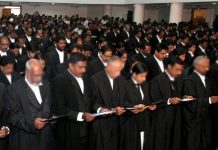This article is written by Vignesh Raj.
Table of Contents
Introduction
The status of success fees paid to lawyers in arbitration and litigation matters in India has been a hotly debated topic. However, popular to the general misconception, there is no bar upon all lawyers from charging a contingent/ success fee. Courts in India have held that foreign lawyers[1] and persons acting as counsels[2] are permitted to charge contingent fees. It is also pertinent to note that there exists no express bar as per the Indian Contract Act, 1872, for the enforcement of contracts having certain clauses which are based on a contingency.
However, an advocate practising in India is expressly barred by law from charging a fee contingent on the outcome of a legal proceedings as per The Advocates Act, 1961 (“the Act”) and the rules framed by the Bar Council of India (“BCI”). This article seeks to explore the rights of lawyers practising in India to charge contingent fees and the bar set by law for charge on such fees. The article will also explore the interplay of the existing bar on success fees currently imposed upon advocates’ vis-à-vis the breach of their right to profession, life and livelihood.
Meaning of ‘advocate’ as per the Advocates Act, 1961
While the words ‘lawyer’ and ‘advocate’ are in colloquial terms used interchangeably, the law in India recognises advocates to be a “class of persons entitled to practise the profession of law”[3]. Such an entitlement to practise gives an advocate the right to represent clients before all courts, tribunals or such other authorities mandated by law.[4]
The right of an advocate to practise envelopes not only his/ her appearance before courts but also includes acts performed in discharge of his professional duties. These duties may include giving his legal opinion to clients, drafting instruments, court related documents, etc.[5] The regulatory mechanism prescribed under the Act also apply to the conduct of advocates carrying out non-litigation work.[6] On the other hand, while the term lawyer is not defined as per the law in India, it is quite often used to denote anyone who has completed their degree in law. Such persons may not be actively engaged in the practise of law.
Therefore, while all advocates are lawyers, all lawyers are not advocates.
The bar on charge of contingent fees explained
The rules made by the BCI expressly bar advocates from stipulating a fee contingent on the results of the litigation or from agreeing to share the proceeds thereof.[7] These rules have been made pursuant to the powers bestowed upon the BCI under the Advocates Act, 1961.[8]
The rationale behind this limitation is to ensure that such agreements should not adversely affect an advocate’s ability to act objectively and in a detached manner as an officer of the court. [9] In other words, such an agreement is considered as an impediment upon the role of an advocate to assist the court in the administration of justice. Any agreement with a contingent fee between an advocate and his client, either oral or in writing is forbidden by law and therefore void.[10]
However, such a bar is exclusive to the category of lawyers practising as advocates or representing their clients in their capacity as an advocate. Curiously, the Bombay High Court in a case held that a lawyer not enrolled as an advocate in India and who represented a client as a ‘counsel’ is permitted to charge a contingent fee.[11] While the dictum of the judgement raises significant questions as to the meaning of the term “entitled to practise the profession of law”, the case may be an anomaly for the sole reason that the lawyer who had charged a contingent fee in the matter was not enrolled as an advocate under the Act.
Bar on success fee and the breach of the right to profession, life and livelihood on advocates
Justice has often been considered the reason for litigants to seek recourse to the courts of law. While some writers argue that the right to charge a contingent fee would give litigants greater access to justice, such a view has not been accepted in India. This is because the courts have repeatedly held that if the intention for taking up a case is to increase access to justice, then the right to charge fees by an Advocate can be waived and not be made contingent upon the outcome of the case.
The courts have also opined that litigants can also take recourse to the Legal Services Authority to avail affordable and/ or free legal services if they are unable to afford an advocate.
Numerous decisions of the courts in India have held that advocates practising in India and charging a contingency amounts to professional misconduct under the Act.[12] Such misconduct often results in severe punishment by the BCI which can include a fine as well as a suspension of their right to practise before a court of law as an advocate.
While, the right to practise any profession in India is guaranteed as a fundamental right by the Constitution of India,[13] such right is not unfettered and is subject to reasonable restrictions in the interests of the general public.[14] For example, a person has every right to practise law as a profession provided that he obtains a ‘Bachelor of Laws’ degree from a law school and is given a certificate of practise by the BCI after clearing the bar exam.
While lawyers are free to enter into any contract of their choice, they are subject to the rules of professional etiquette/ conduct, and professional ethics of the legal profession, and cannot disobey the rules of conduct whose officers they claim to be.[15] This is because the profession of law requires an advocate to have a sense of detachment and objectivity as an officer of the court. A professional fee charged upon the final outcome of the court may result in lawyers resorting to unethical practices and being indifferent to the highest ethical standards, if he/ she were to be personally interested in the outcome of the case.
Therefore, the law preventing the right of an Advocate to charge a contingent fee does not affect his right to carry on his profession. Further the right to life and livelihood as enshrined under Article 21 of the Constitution is in no way affected by a statute and rules made thereunder, intended to ensure that an advocate maintains the highest standards of professional ethics and conduct.
Conclusion
The profession of law has always been viewed as a noble profession intended to be carried out with integrity and with an intention to serve the community. Any potential threat to the conduct of an advocate so as to corrupt his intentions as an officer of the court is required to be nipped in the bud as has been done by the rules framed by the BCI.
Owing to the present pandemic and the recession currently faced in the Indian economy, innovative and novel strategies of charging clientele by advocates and law firms may be the need of the hour. However, strategies which are in direct conflict with the law of the land cannot be held to affect the right of advocates to practise their profession or their right to life and livelihood.
The professional mandate of an advocate is to provide legal advice and representation to his clients. Such actions cannot be against the rules of practise as set down by the BCI. The rationale behind such a rule is to ensure that advocates do not get personally involved in their client’s stance and instead assist the court in delivering justice. While the rationale may not necessarily result in the intended consequences, however, any reconsideration in this regard requires to be made by way of an amendment to the rules by the Bar Council of India keeping in mind the stance of all stakeholders concerned and most importantly the rule of law.
References
[1] Spentex Industries Ltd v Quinn Emanuel Urquhart Sullivan LLP, CS (OS) No. 568 of 2017
[2] Jayaswal Ashoka Infrastructures Pvt. Ltd. vs Pansare Lawad Sallagar, 2019 Bombay High Court (Nag Bench), First Appeal No. 106 of 2015
[3] Sec. 20, The Advocates Act, 1961
[4] Sec. 21, The Advocates Act, 1961
[5] Pravin C. Shah vs K.A. Mohd. Ali & Anr., (2001) 8 SCC 650
[6] Ibid
[7] Part VI, Chapter II, Rule 21 of the Bar Council of India Rules, 1975
[8] Sec. 49(1)(c), The Advocates Act, 1961
[9] Shubhangi Maheshwari, Allowing Lawyers to charge Contingency Fees: Impact on the Legal Service Market, [II] GNLU J. of L. & Econ. (2019)
[10] Sec. 23, Indian Contract Act, 1872
[11] Jayaswal Ashoka Infrastructures Pvt. Ltd. vs Pansare Lawad Sallagar, 2019 Bombay High Court (Nag Bench), First Appeal No. 106 of 2015
[12] In re: Mr. G., a Senior Advocate of the Supreme Court, 1955 1 SCR 490; K.L. Gauba v. Unknown, AIR 1954 Bom 478 and B. Sunitha v The State of Telengana & Anr (2018) 1 SCC 638
[13] Article 19(1)(g), Constitution of India, 1950
[14] Article 19(6), Constitution of India, 1950
[15] K.L. Gauba v. Unknown, AIR 1954 Bom 478
LawSikho has created a telegram group for exchanging legal knowledge, referrals and various opportunities. You can click on this link and join:
 Serato DJ Crack 2025Serato DJ PRO Crack
Serato DJ Crack 2025Serato DJ PRO Crack











 Allow notifications
Allow notifications


